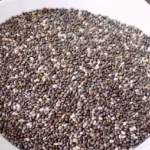Being fit will reduce stress
Being fit will reduce stress, Stress has become a necessary component of life in the fast-paced society we live in today. From demanding work schedules to personal responsibilities, the pressures can sometimes feel overwhelming. However, one powerful tool stands out in the fight against stress – fitness. As seasoned fitness experts with over a decade of experience, we understand the profound impact that a well-rounded fitness routine can have on stress reduction. In this comprehensive guide, we’ll delve into the science behind the connection between fitness and stress, explore various exercise modalities, and provide practical tips to help you harness the transformative power of fitness in your journey towards a stress-free life.
Section 1: The Science behind Fitness and Stress Reduction
1.1 The Role of Endorphins:
Delve into the science of endorphins, the body’s natural stress-relievers.
Explore how exercise triggers the release of endorphins and its impact on mood.
1.2 Cortisol Regulation:
Discuss the role of cortisol, the stress hormone, and how regular exercise helps regulate its levels.
Highlight the importance of maintaining a balanced cortisol response for stress management.
Section 2: Choosing the Right Fitness Routine
2.1 Cardiovascular Exercise:
Explain how aerobic activities like running, swimming, or cycling positively impact mental well-being.
Provide tips on incorporating cardiovascular exercises into a busy lifestyle.
2.2 Strength Training:
Explore the benefits of strength training in building resilience to stress.
Share beginner-friendly strength exercises and routines.
2.3 Mind-Body Practices:
Introduce mindfulness activities like yoga and meditation and their profound effects on stress reduction.
Provide guidance on integrating mind-body practices into a fitness routine.
Section 3: Building a Sustainable Fitness Routine
3.1 Setting Realistic Goals:
Discuss the importance of setting achievable fitness goals for long-term success.
Provide a step-by-step guide on goal setting and tracking progress.
3.2 Consistency and Variety:
Emphasize the significance of consistency in a fitness routine.
Explore how incorporating variety can prevent boredom and enhance overall well-being.
Section 4: Lifestyle Factors for Stress Reduction
4.1 Nutrition:
Highlight the relationship between a balanced diet and stress management.
Offer dietary tips to support overall health and fitness goals.
4.2 Sleep Hygiene:
Discuss the impact of sleep on stress levels.
Provide practical tips for improving sleep hygiene.
Stress and physical well-being are interrelated. If a person is under mental stress, first of all it will affect the body and the body will develop various problems and diseases.
Physical fitness is necessary to reduce stress or to stay mentally healthy. Keep the body fit to stay mentally healthy. That’s why it is important to drink enough water, eat nutritious food and do some daily exercise. This will eliminate hundreds of physical and mental weariness and maintain mental and physical fitness.

Stress is our daily companion. But that partner should not be accepted. Do not compromise with this pressure. Some of the physical exercises needed to combat this stress are mentioned below:
Run to relieve stress
Along with other exercises, running is one of the exercises. Nothing else compares to running. If a person can run for 10-15 minutes every day, he can avoid many types of physical complications and diseases. There is no substitute for regular running for proper muscle circulation. According to information sources, running is one of the best medicines to reduce stress. Even if you don’t get good results, regular running will keep you away from irritable mood during overwork. It is the kind of exercise that stimulates active thinking as needed. And automatically stops unnecessary worries. There is no alternative to running regularly to relieve stress and expect good things from yourself.
Rest between work
No matter where you work in the office or at home, there is no break between work, rest for a while, you can take a walk. Maybe take a short walk instead of sitting on a chair while talking on the phone. Sometimes you can use the stairs instead of the elevator in the office. Also take some breaks in between work. Sit in a chair and relax. Put your hands behind your head and straighten your legs to apply pressure on the shoulder muscles. This will relax the shoulder muscles. You will see that the irritation will disappear instantly and you will feel relaxed. If you sit for a long time, the shoulder and back muscles become numb. As a result, irritation comes. So walking and exercising will help a lot to bring back the freshness.
Sunlight to reduce stress
Sunlight is very important for both physical and mental health Studies have shown that people in countries where the sun doesn’t shine have a higher rate of depression. When the body is active, a hormone called endorphin is released, which reduces stress and improves mood. Exposure to sunlight increases serotonin levels in the brain, which helps reduce stress. It is best to avoid closed or dimly lit rooms or places where there is not enough light.
Yoga to reduce stress
Practicing yoga calms the mind and when the mind is calm, mental stress is reduced in many areas. Yoga is very beneficial for body and mind It cannot be avoided that yoga is truly beneficial for the body and mind. Yoga connects the mind and body through the breath. So roll out your mat or mat now and practice yoga and banish your unnecessary worries and frustrations.
Spend time with something you love
One of the most important ways to de-stress is to spend time with something you love or do something every day that you actually love. As many people like to read books, he can read books for some time every day. A person who likes to listen to music may listen to music for some part of the day. Talking with the family for a while, going to the garden and watering the trees, doing these kinds of things will reduce the stress in many parts.
Does being healthy reduce stress?
Maintaining good health is not only a physical investment but also a powerful stress-management strategy. The intricate connection between physical well-being and mental health cannot be overstated. Engaging in regular exercise, consuming a balanced diet, and ensuring sufficient sleep are key components of a healthy lifestyle that contribute to stress reduction. Physical activity releases endorphins, the body’s natural stress relievers, promoting a sense of well-being and relaxation. Additionally, a nutritious diet provides the body with the essential nutrients it needs to function optimally, influencing mood and cognitive function. A well-rested body is better equipped to handle stressors, as sleep plays a crucial role in emotional regulation and resilience. By prioritizing health, individuals are essentially fortifying themselves against the negative impacts of stress, creating a foundation for a more balanced and harmonious life. In essence, being healthy serves as a proactive and holistic approach to stress reduction, empowering individuals to navigate life’s challenges with greater ease.
Can exercise reduce anxiety?
Exercise has long been recognized not only for its physical benefits but also for its profound impact on mental health, particularly in alleviating anxiety. Engaging in regular physical activity has been shown to reduce symptoms of anxiety and stress, offering a natural and accessible means of promoting mental well-being. The physiological mechanisms behind this phenomenon are multifaceted, involving the release of endorphins, the body’s natural mood elevators, and the reduction of stress hormones such as cortisol. Additionally, exercise provides a valuable opportunity for individuals to break away from the demands of daily life, offering a meditative and mindful space that can contribute to stress reduction. Whether it’s a brisk walk, a vigorous workout, or a calming yoga session, incorporating regular exercise into one’s routine can be a powerful strategy for managing anxiety and enhancing overall mental health. As with any health-related practice, it’s important to find activities that resonate with individual preferences and capabilities, creating a sustainable and enjoyable approach to anxiety reduction through exercise.
Does being fit help your mental health?
Maintaining physical fitness is not just about sculpting a toned physique; it extends far beyond the realm of physical appearance. The intricate relationship between physical and mental health is a topic that has garnered increasing attention in recent years. Numerous studies have indicated that being fit is intrinsically linked to positive mental well-being. Engaging in regular exercise not only releases endorphins, the body’s natural mood lifters, but it also reduces stress hormones and promotes better sleep, all of which contribute to a healthier state of mind.
The connection between physical fitness and mental health is a dynamic synergy. Physical activity has been shown to alleviate symptoms of anxiety and depression, providing a natural and accessible avenue for those seeking mental well-being. Moreover, the discipline and structure inherent in maintaining a fitness routine can positively impact one’s mental health by instilling a sense of accomplishment, boosting self-esteem, and fostering resilience.
In essence, the adage “a healthy mind in a healthy body” holds profound truth. The journey to physical fitness not only transforms the body but acts as a catalyst for positive change in mental health. By recognizing and nurturing this symbiotic relationship, individuals can empower themselves to lead a more balanced and fulfilling life. Whether it’s a brisk walk, a yoga session, or a high-intensity workout, the benefits extend beyond the physical, reaching into the realm of mental clarity and emotional well-being.
Final Thoughts:
In conclusion, the journey to a stress-free life begins with the transformative power of fitness. By understanding the science behind stress reduction, choosing the right fitness routine, and adopting lifestyle factors that support well-being, you can pave the way for a healthier, happier, and more balanced life. As seasoned fitness experts, we invite you to embark on this journey with us, discovering the countless benefits that being fit can bring to your overall stress levels.











